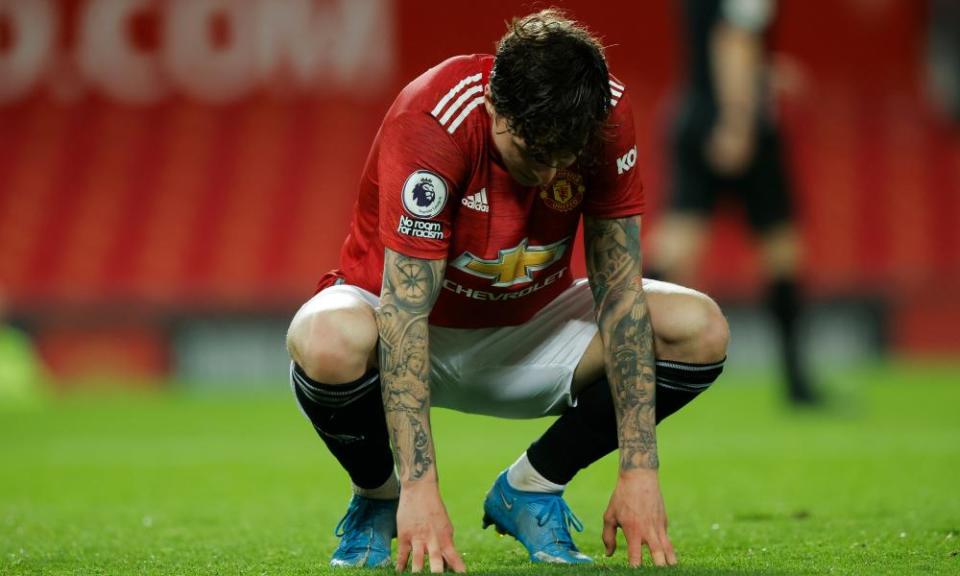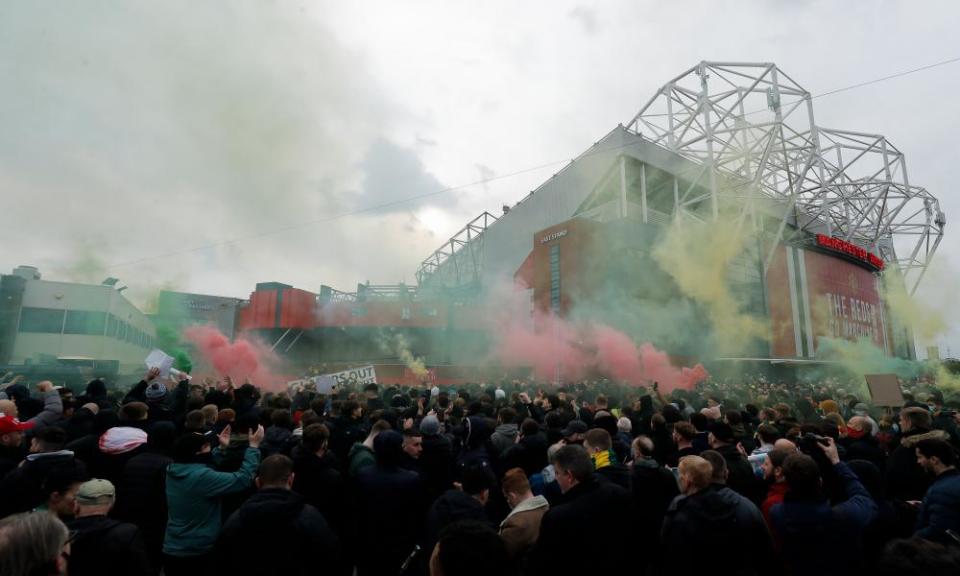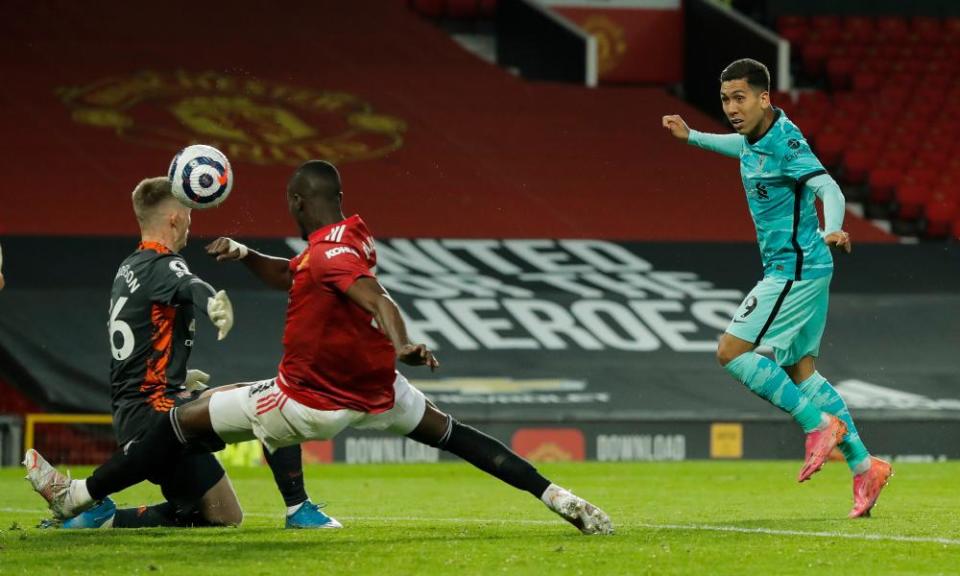Fatigue, flares and fine details threaten Manchester United’s march

An enormous police presence. Dogs. Drones. A helicopter. A 10ft wall. Crash barriers. Subterfuge. It has taken an awful lot for the Premier League and their partners to get matches played since last June but Thursday night at Old Trafford for the classic of the English football calendar – Manchester United v Liverpool – took matters to a whole new level.
The details above are the eye-popping ones, the response to the fear that a group of United supporters – incandescent at the Glazer family and the owners’ drive to join the failed European Super League – might try to force a second postponement, the original fixture on the Sunday before last having been bumped after protesters stormed the stadium.
Related: Why China investment in Inter brings urgent need to scrutinise owners | Barney Ronay
It is the smaller, technical minutiae that concern Ole Gunnar Solskjær at present; some linked to the fallout from the demonstrations, others to wider issues of mentality and physical condition at the end of a draining season. Preparation, focus, energy. All of a sudden, United have been found wanting and there is an echo, in some ways, of the end of the previous campaign along with the same challenge – to find a way to get over the line.
Towards the end of Project Restart last July, United were wobbling, tired minds and bodies leading to a four-game sequence of poor Premier League performances, which set up a decider at Leicester to qualify for the Champions League. They pulled it off with a 2-0 win.
This time, the defining game is the very last of their season – the Europa League final against Villarreal on 26 May – and, after the week that United have had, it is plain they must draw a spark from the fumes upon which they have run.
The victory at Aston Villa on Sunday came at a cost, with the ankle injury to Harry Maguire, the captain, which makes him a doubt for Villarreal, and Tuesday’s home loss to Leicester was followed by another one against Liverpool.
Solskjær talked about the little details after Liverpool, specifically in terms of the preparatory routines for an Old Trafford fixture, which have needed to be adapted during the pandemic but have been blown to pieces for the past two games in light of the security worries.

On Thursday Solskjær’s players left nothing to chance and drove to the ground at lunchtime, with the club putting beds in executive boxes to allow them a lie-down if wanted. Footballers are creatures of habit; they drill heavily into the muscle memory and even superstitions can come into play. Change is not always embraced. For Leicester, too, the preparations were far from the norm.
“Everyone who has played at this level, at this intensity – they know that attention to detail is so important and that’s why we prepare in a certain way for every game,” Solskjær said. “We couldn’t do that now. I thought the players handled it really well; none of them have been complaining. We haven’t got the result, we haven’t got the performances, so it’s probably affected them a little bit but, as I say, none of the players would make an excuse of it.”
What has alarmed Solskjær are the lapses, particularly on defensive set pieces. United conceded the winner to Leicester when Marcus Rashford, a substitute, failed to track Caglar Soyuncu on a corner for 2-1 and, against Liverpool, there were two more as a 1-0 advantage turned to a 2-1 half-time deficit. Liverpool would run out 4-2 victors. First Dean Henderson’s punch from a corner was returned by Mohamed Salah and, after good work by Nat Phillips, Diogo Jota flicked home and then Roberto Firmino ran off Paul Pogba to head in Trent Alexander-Arnold’s free-kick.

United have conceded 14 league goals from set pieces (excluding penalties) and only Leeds, with 15, have let in more. Overall, United have conceded 42 times in the competition, meaning 33.3% of them have been from set pieces – the highest ratio in the division.
It speaks of a team with concentration issues and it is interesting, if inconclusive, to consider whether they are linked to physical levels. No club in any of Europe’s top five leagues have played more matches in all competitions this season than United’s 58.
What is easier to feel is how tiredness affects a team’s press and it was noticeable how United’s intensity dropped after the opening 20 minutes against Liverpool. They were in charge until that point, a goal up and winning back possession high up only to fall off a cliff between then and the 68th minute when Rashford’s finish for 3-2 hinted at an unlikely comeback
The rearrangement against Liverpool meant that United had to play three times in five days, although Solskjær started only one player in games two and three – the central defender Eric Bailly. He played on the edge against Liverpool and failed to spread assurance, although was it any wonder? When José Mourinho started another centre-half, Eric Dier, in back-to-back matches for Spurs inside 48 hours last September, he called it a “crime”.
United have three more challenges, beginning with the visit of Fulham on Tuesday and taking in the trip to Wolves next Sunday before the Villarreal final. There will be 10,000 fans inside Old Trafford for Fulham, changing the dynamic again, the discontent possibly even closer to the action. United have a moment to draw breath, to reset. It is only a moment.

 Yahoo Finance
Yahoo Finance 